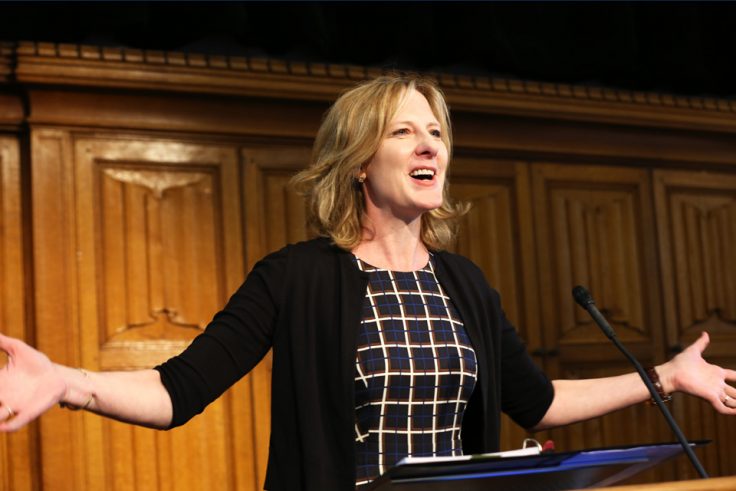We couldn't help but smile when we saw Yale Law School dean Heather Gerken announce the school's new tenure-track professor, Garrett West. A former law clerk for Supreme Court justice Samuel Alito, Judge Thomas Griffith of the D.C. Circuit, and Judge Diarmuid O'Scannlain of the Ninth Circuit, West is… a conservative?
Gerken says she is "completely delighted that Garrett is joining our community." Those must have been hard words for her to write.
On the one hand, it is nice to see that the incentives on campus are changing, and that administrative pole-climbers like Gerken, who is gunning for a promotion from law school dean to Yale president, now feel the need to demonstrate they have a care for ideological diversity.
For Gerken, the move comes in the wake of three years of self-inflicted wounds. Long before the events of Oct. 7, Gerken was teaching a master's level clinic in what happens when elite universities foster an oppressive ideological monoculture. The specter of Yale Law School administrators describing a law student's membership in the Federalist Society as "triggering" to his classmates and demanding a public apology from him for using the term "trap house" should cast a long shadow over her career. So too should the image of students, in violation of the law school's code of conduct, shouting down a panel on free speech without facing consequences of any kind.
West's arrival in New Haven is a start, but Yale Law School has a long way to go. There are other signs, however, that the incentives on campus are changing for the better.
Stanford University on Thursday announced that Jonathan Levin will be its next president. Levin, who has led Stanford's Graduate School of Business for the past several years and before that served as the chairman of its economics department, is an accomplished scholar who has distinguished himself in the field of economics. On that ground alone, he is a departure from administrators in the mold of former Harvard president Claudine Gay.
And finally, Columbia University, whose president Minouche Shafik will testify later this month on Capitol Hill, is investigating the students who participated last month in a terrorist confab. While the students are scheming among themselves about how to frustrate that probe, a spokeswoman for the university told the Free Beacon, "The University is instituting disciplinary action against those who do not cooperate with the investigation." Shafik herself has issued a statement, too, indicating that the university notified law enforcement and hired private investigators to help uncover the facts, and that "a number of students have been suspended as the investigation continues."
The sane, sober, and sensible among us—parents, alumni, students, and donors—should not despair. There are glimmers of hope in this fight to restore sanity to American college campuses.
